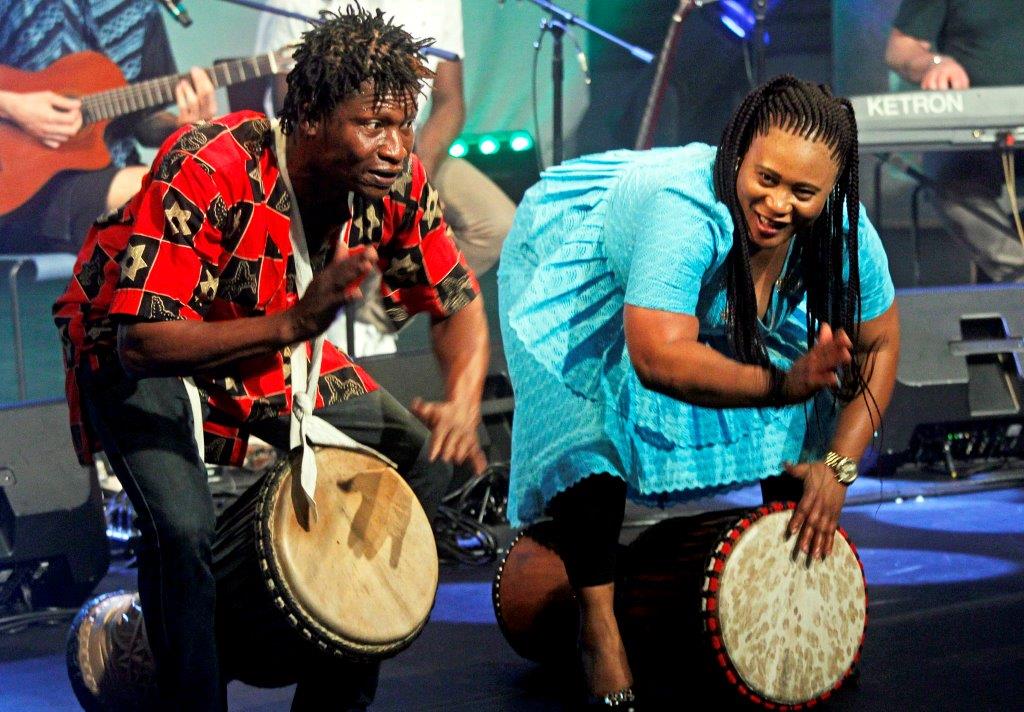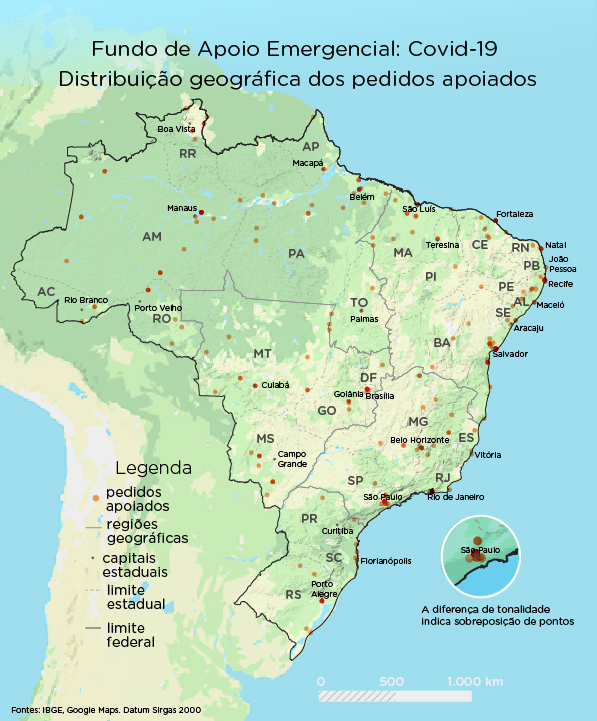In 2025 the National Campaign by the Pastoral Land Commission (CPT) “Eyes open to not become a slave” turns 28 and the project’s actions undertaken in Tocantins, throughout the year, have started counting with support from Labora via the Just Transition and Decent Work: Good Living for Workers of the Fields, Waters and Forests call for proposal.
Developed by the CPT, the project aims to coordinate civil society, public organs and communities in breaking the cycle of slave labor, through grassroots action, thinking about the proposition of public policies together with the communities and undertaking trainings for the strengthening of territories.
Tocantins has figured among the states with the highest occurrence of slave labor in Brazil, especially in rural areas tied to agricultural and livestock expansion. According to the Brazil Rural Conflicts of 2024 CPT publication, the state has registered 48 land conflicts and 2 cases of slave labor in that year. Despite a significant diminishing to the cases of slave labor within the latest years in the country’s North region, Evandro Rodrigues (CPT agent and campaign director) highlights the decrease in numbers doesn’t mean that slave labor is over, but reveals the problem goes through a crescent of invisibility and naturalization.
The publication also attributes part of the decrease to the Fiscal-Auditors of Labor (AFTs) strike, that started in March 2024. The strike reclaimed, among other points, the betterment of work conditions for the category, that has suffered from dismantlement within the latest years.
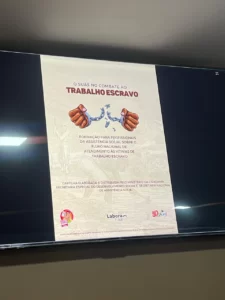 What labor similar to slavery is
What labor similar to slavery is
Unfortunately, labor analogous to slavery isn’t an exception to Brazil; it’s part of our historic reality, marked by latifundium, by colonization, and by racism. According to the Labor Inspection in Brazil Data and Statistics Panel, from 1995 to 2023, over 63,4 thousand workers have been enslaved in rural and urban regions.
According to Article 149 of the Brazilian Penal Code, this type of work is characterized when a worker is subjected to one or more of the following conditions: restriction of freedom, degrading conditions, exhaustive work hours or debt bondage. To know more, check the “What labor similar to slavery is” article, in the Brazil of Rights website.
In this scenario, it is vital to financially support a project that seeks to tackle this reality. Through training, conscientization and the creation of protection networks, the CPT-TO initiative promotes sustainable economic alternatives and ensures working and social rights. Among its actions, it’s important to highlight the training of public agents and communities to fight slave labor.
The role of social work in the sheltering of victims
Between May 22nd and 23rd, CPT-TO conducted workshops about “The role of social work in the fight against slave labor and the flow of service to the victims” in the cities of Araguatins, Axixá do Tocantins and Palmeirante. Over 120 workers of the Unified System of Social Service (SUAS) took part, deepening their understanding of how to proceed in cases of slave labor, from the reporting to the aftermath of rescue.
Ludimila Carvalho, director of the CPT regional Araguaia-Tocantins, talks about the role of trainings also as a moment to bring hope and renovation to the agents, so as to keep on in the fight for a land free of slave labor. For her, “the training workshops are spaces of sharing, transformation and valuing of collective memory, which rekindle in us our courage and commitment to the rural peoples. Those are the spaces where we renew the mystique, share learnings and strengthen the journey towards justice, dignity and liberation.”
If you know or suspect cases of labor similar to slavery, there are many ways to report and help fight this egregious violation of human rights. You can make your report through the Public Labor Prosecution Office (MPT) or call the Citizen Support of your city.
Another option is the Ipê System, a federal government portal that receives reports remotely and discreetly. Moreover, there are two important phone channels: Dial 100, dedicated to reports of human rights violations in general, and Dial 158, from the Ombudsman of the Labor and Employment Ministry.
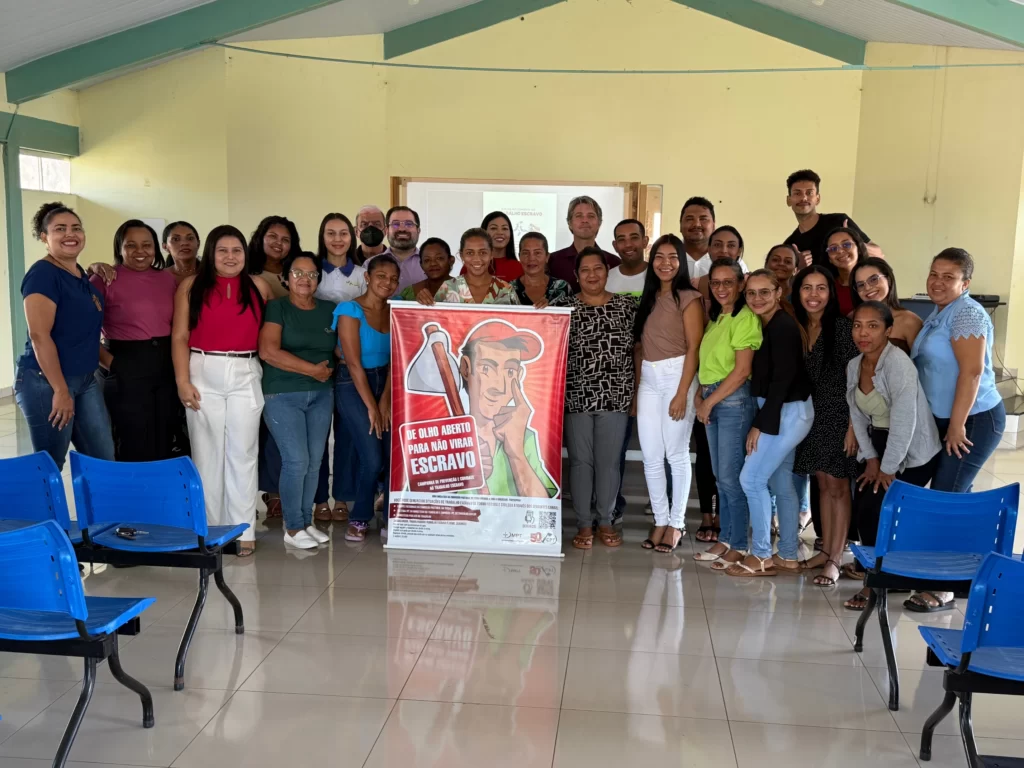
Training of the CPT-TO with SUAS agents. Photo by: Luciano Dourado, 2025.
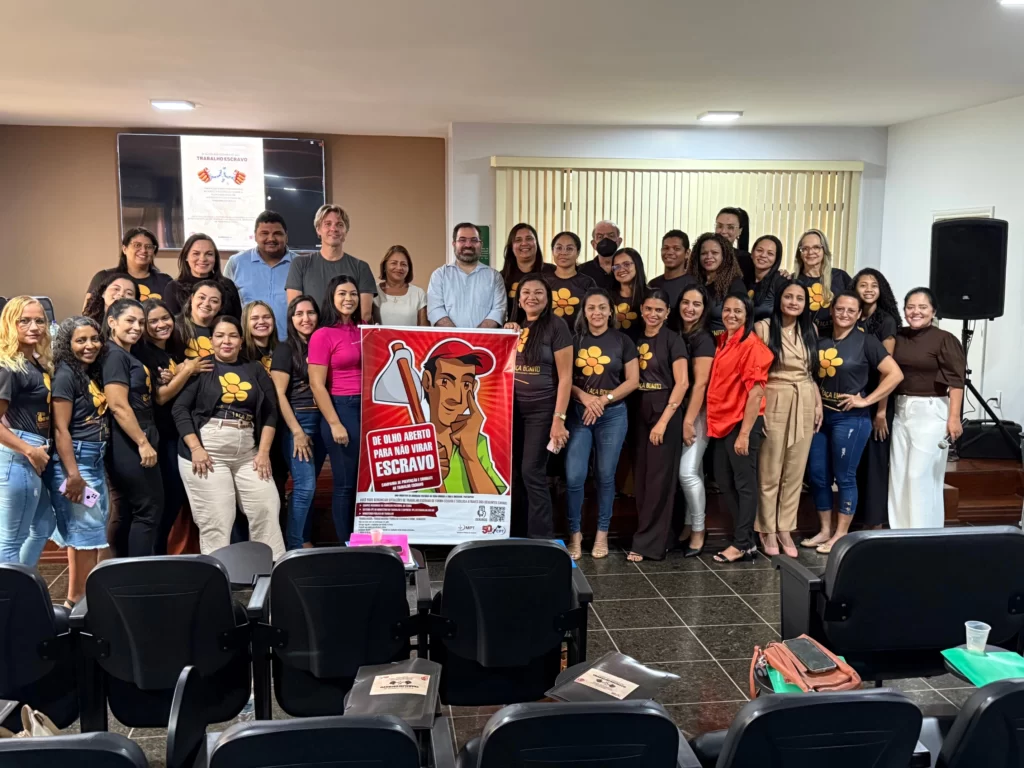
Training of the CPT-TO with SUAS agents. Photo by: Luciano Dourado, 2025.























